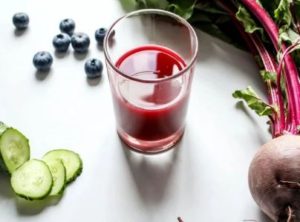
London [UK]: According to new research presented at the British Cardiovascular Society conference, consuming beetroot juice daily for six months following the insertion of a stent reduced the probability that angina patients would have a heart attack or require repeat treatment.
Thousands of coronary heart disease patients each year in the UK have a stent implanted to widen one of the blood vessels in their heart and ease their angina, in a procedure known as a percutaneous coronary intervention (PCI).Around 10 per cent of patients experience restenosis, where the stented blood vessel narrows again and heart disease symptoms return, within five years of a PCI. By advising that patients drink beetroot juice, doctors could soon reduce the chance that the stent fails in this way.
When the blood vessel width of patients was measured six months after stenting, the vessels of those who had beetroot juice showed around half as much narrowing in that time as those who had the placebo treatment.By stopping restenosis, beetroot juice could stop patients from having to have another PCI procedure that may also fail or a much more invasive coronary bypass surgery.
Dr Krishnaraj Rathod, Clinical Senior Lecturer at the William Harvey Research Institute, QMUL, who led the trial, said: “Experiments in the lab suggested that the inorganic nitrate, which is found naturally in beetroot juice, would have these effects, and it is very encouraging to see it create such a big improvement in the clinic for angina patients. Our patients liked that their treatment was a completely natural product that has no significant side effects.
“We will now take this to the next stage of trials in the hope that doctors can soon prescribe beetroot juice to ensure stents last longer to provide even more effective relief of symptoms.”
Professor James Leiper, Associate Medical Director at the British Heart Foundation, said:”Stenting is one of the most crucial tools we have in the fight against coronary heart disease but work still needs to be done to ensure that every patient sees a long-term benefit from the procedure.”Thousands of patients each year have to go through the stress of a medical procedure on their heart more than once before it is successful. This small study offers hope that this can be prevented. The trial must now be scaled-up to confirm the initial observation that beetroot juice can make a difference.”
The researchers were able to show that beetroot juice helps patients thanks to its natural high level of inorganic nitrate. Patients in the trial that had beetroot juice with inorganic nitrate removed did not get the same beneficial effects.Inorganic nitrate is a nutrient that gets converted to nitrite by naturally found bacteria in the mouth, which is then turned into the signalling molecule nitric oxide (NO) by enzymes in the body. It is thought that NO is the cause of the positive effects on patients’ blood vessels.
Beetroot juice was shown to be a safe and reliable way to get inorganic nitrate into the body, with no significant side effects experienced by any of the 300 patients on the trial other than pink urine.The team are now looking to start a larger trial soon. They are hoping that, if successful, beetroot juice can be prescribed as a treatment to be taken after stent implantation. This may then extend beyond angina patients to those who have had a stent for a different reason, like after a heart attack.




 Driving Naari Programme launched in Chandigarh
Driving Naari Programme launched in Chandigarh






























